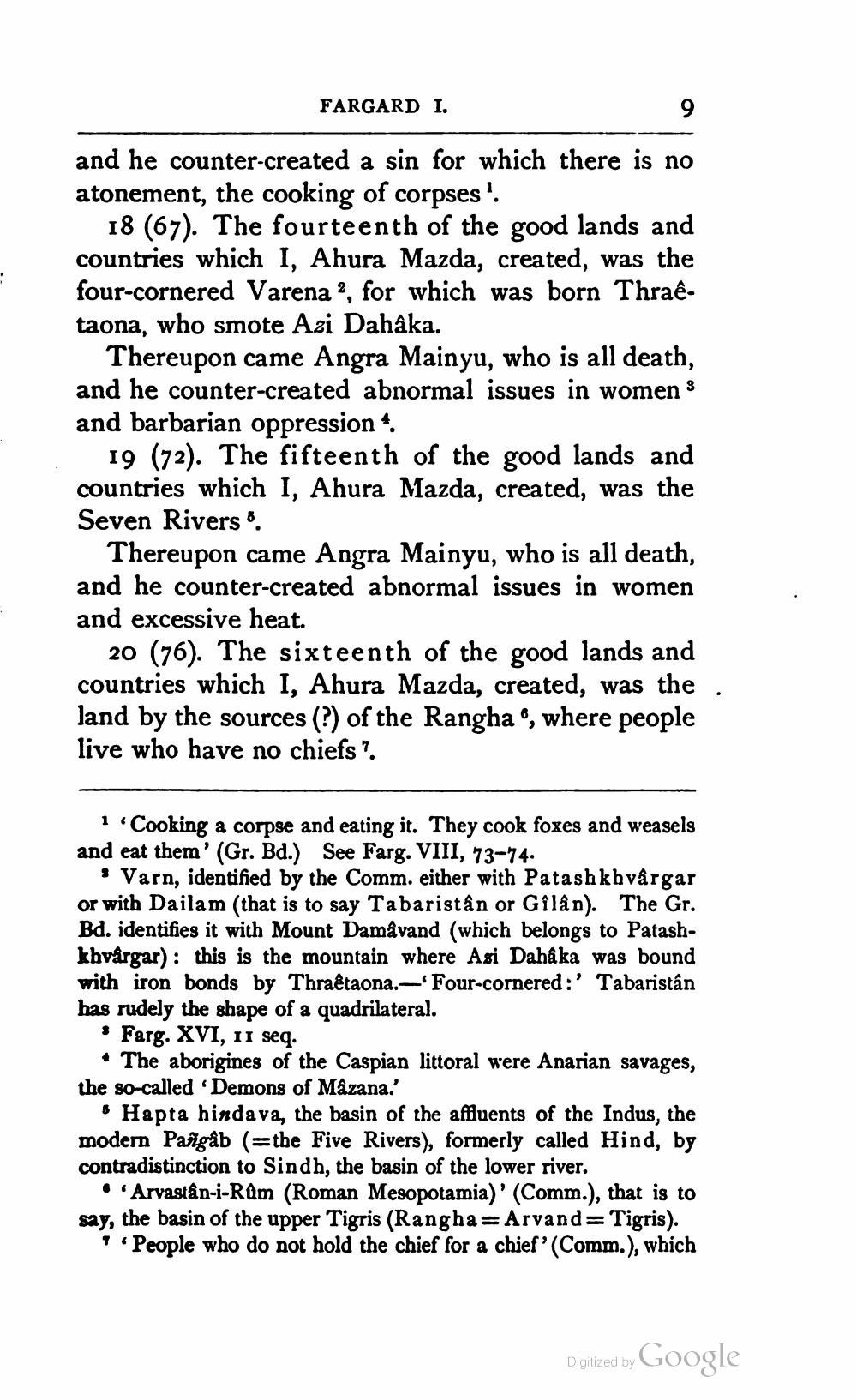________________
FARGARD I.
and he counter-created a sin for which there is no atonement, the cooking of corpses'.
18 (67). The fourteenth of the good lands and countries which I, Ahura Mazda, created, was the four-cornered Varena ?, for which was born Thraêtaona, who smote Azi Dahâka.
Thereupon came Angra Mainyu, who is all death, and he counter-created abnormal issues in womens and barbarian oppression -
19 (72). The fifteenth of the good lands and countries which I, Ahura Mazda, created, was the Seven Rivers
Thereupon came Angra Mainyu, who is all death, and he counter-created abnormal issues in women and excessive heat.
20 (76). The sixteenth of the good lands and countries which I, Ahura Mazda, created, was the land by the sources (?) of the Ranghao, where people live who have no chiefs ?.
I'Cooking a corpse and eating it. They cook foxes and weasels and eat them' (Gr. Bd.) See Farg. VIII, 73–74.
• Varn, identified by the Comm. either with Patashkhvârgar or with Dailam (that is to say Tabaristân or Gilân). The Gr. Bd. identifies it with Mount Damavand (which belongs to Patashkhvårgar): this is the mountain where Asi Dahaka was bound with iron bonds by Thraêtaona. — Four-cornered:' Tabaristan has rudely the shape of a quadrilateral.
• Farg. XVI, 11 seq.
• The aborigines of the Caspian littoral were Anarian savages, the so-called 'Demons of Mâzana.'
Hapta hindava, the basin of the affluents of the Indus, the modern Pañgab (=the Five Rivers), formerly called Hind, by contradistinction to Sindh, the basin of the lower river.
• Arvastân-i-Rom (Roman Mesopotamia)' (Comm.), that is to say, the basin of the upper Tigris (Rangha=Arvand= Tigris).
1. People who do not hold the chief for a chief'(Comm.), which
Digitized by Google




